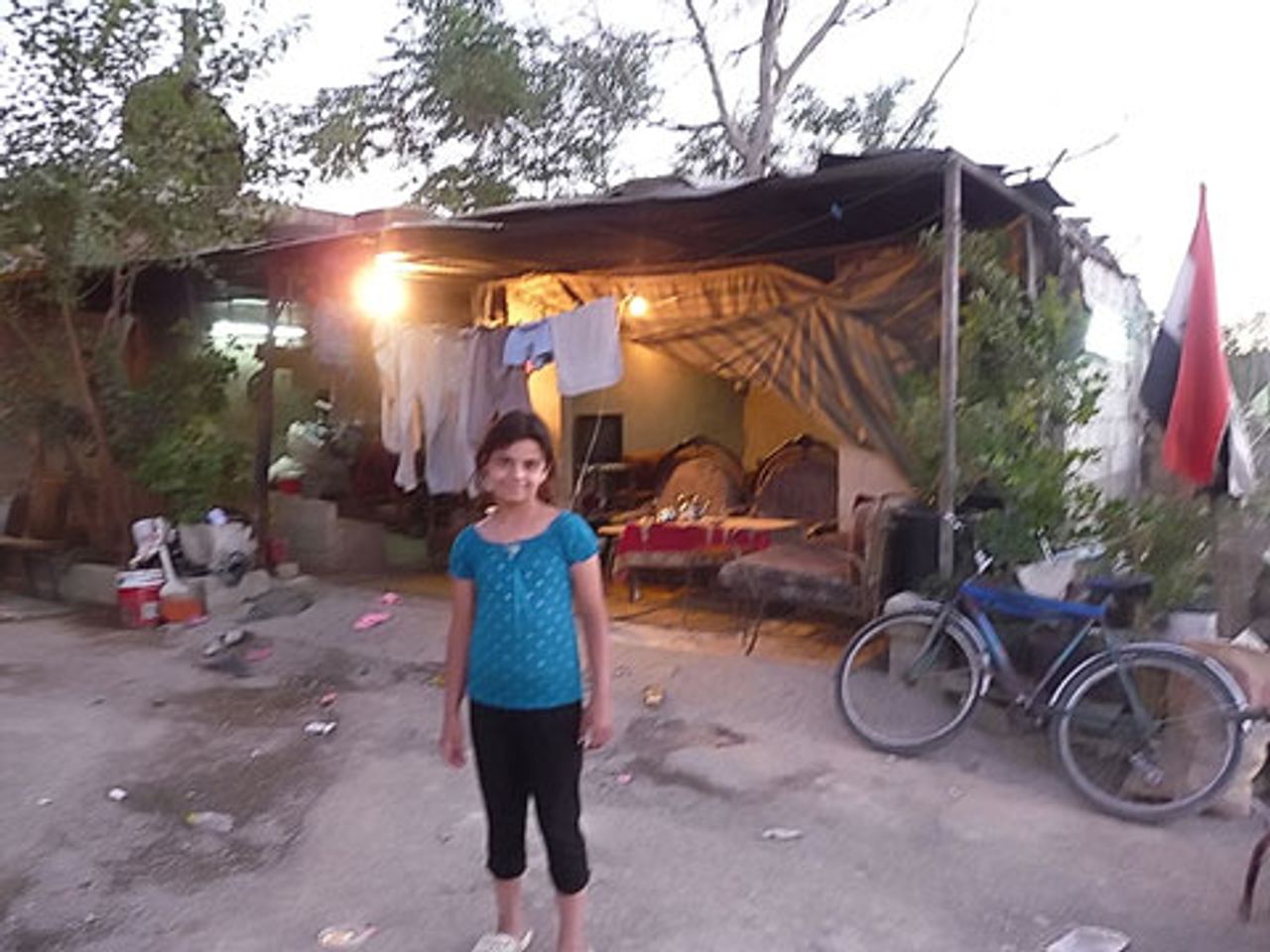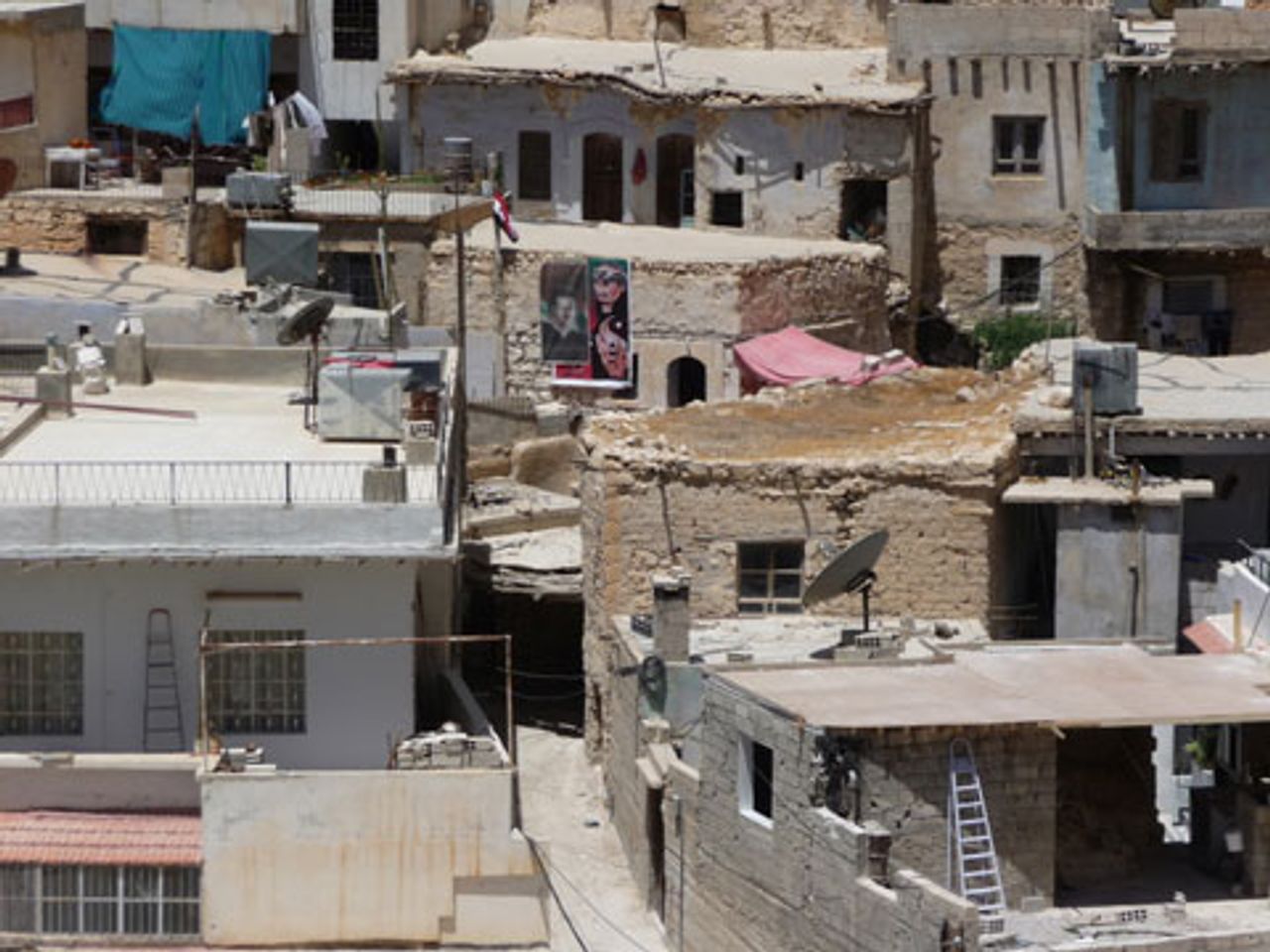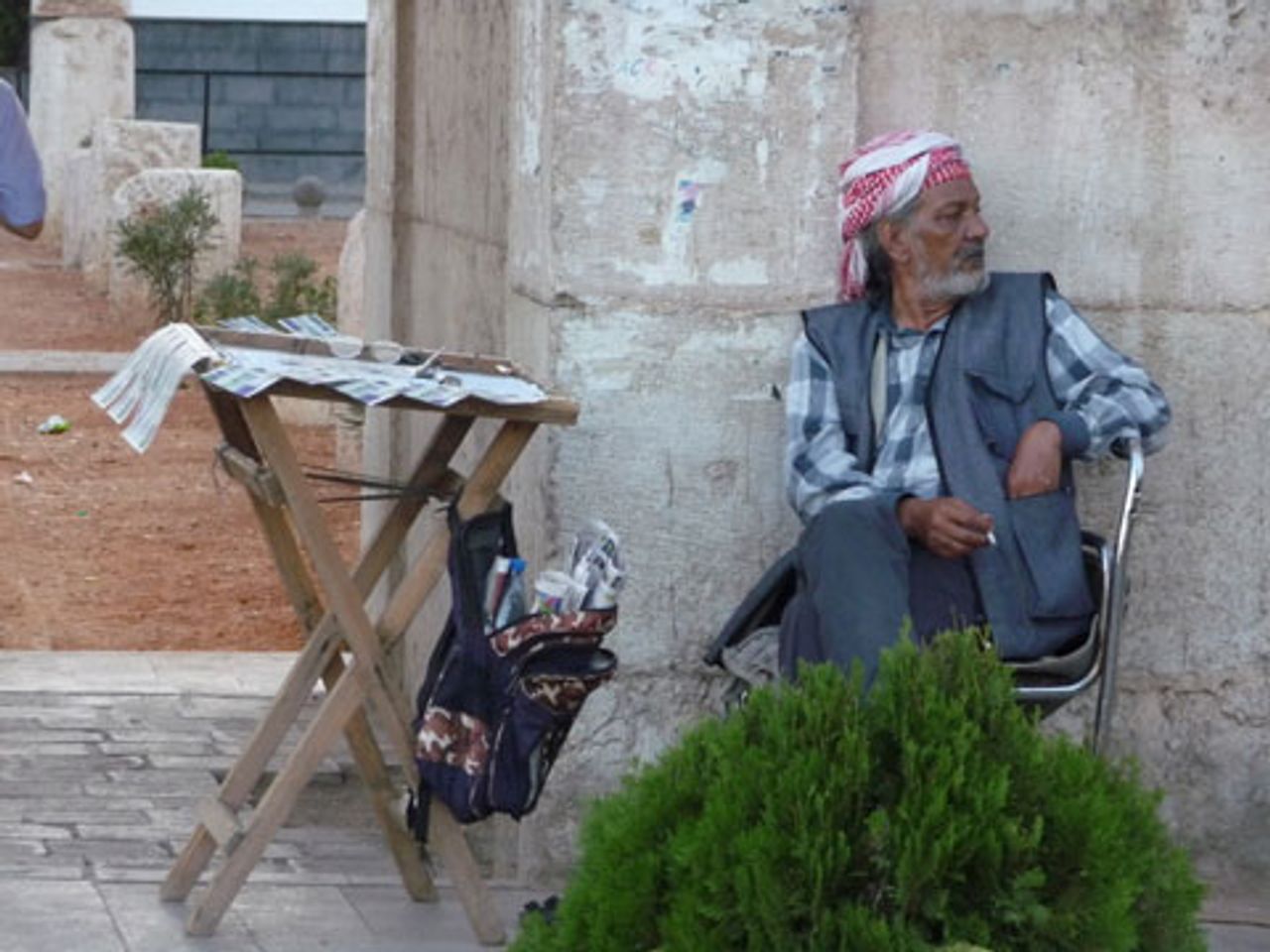Syria deregulates its economy to further rapprochement with Washington
By Jean Shaoul
13 July 2010
Porsche, the luxury carmaker, opened its first sales and service centre in Damascus, Syria, last May. It is testimony to the increasing wealth enjoyed by a thin social layer in the last five years that this fiercely protectionist and nationalist regime has sought to integrate into the wider regional economy and improve relations with Washington.
The government of President Bashar al-Assad has partially opened up the banking sector, and Lebanese and Gulf state banks have moved in. It has slashed corporate taxes, import duties and subsidies and lifted restrictions on prices and imports. After more than 40 years, the stock exchange has reopened. As yet, just 12 companies, mainly banks, are traded.
The government has sought a closer relationship with France, the former colonial power, and the European Union, which takes 23 percent of Syria’s exports, mainly energy and agricultural products, although it has still to finalise a formal agreement. It is seeking closer links with Jordan, with which relations have long been strained.
Syria has now achieved observer status at the World Trade Organisation, a step towards full membership, which was only possible due to Egypt’s support and the abandonment by the United States and Israel of their long-standing vetoes against Syria’s bid to join.
Damascus has signed trade agreements with Turkey and scrapped visa requirements for travel between the two countries. It has signed joint venture deals with a Turkish company for a giant cement factory in Tadmor, Saudi Arabia, for water treatment plants and India to develop oil shale and phosphate extraction.
While Syria’s small oilfields are in decline and are set to produce about 340,000 barrels per day for the next 15 years, gas production is increasing and is expected to yield 32 million cubic metres a day by the end of 2010. The industry has long suffered under the US trade embargo, which has seen many Western firms steer clear of Syria.
The government has invited international companies to bid for the exploration, development and production of eight gas and oil blocks near its borders with Turkey, Iraq and Jordan, and four offshore blocks. China has aggressively targeted Syria’s oil and gas sector over the last 18 months. Syria is also seeking to become a route for major gas and oil pipelines.
In April, the government brought in new labour laws allowing employers to fire workers without providing a reason, in an attempt to make Syria a low-wage platform attractive to inward investors. Under the previous arrangements, most employers refused to give their staff any formal contract at all in order to evade the limited rights that do exist for workers and avoid paying contributions into the National Social Insurance Fund for their employees. As a result, few other than public sector employees are covered for health and other social insurance benefits. While the new law requires employers to register their workers in the National Social Insurance Fund, the low level of the fines and the lack of effective enforcement mean that this will be a dead letter.
Presented by the government as a major improvement for workers’ rights, the new legislation seeks to undermine the informal economy that accounts for 45 percent of the workforce and to eliminate “unfair competition”. The minimum wage remains at SYP6,000 (US$120) a month, which is not enough to keep two people above the US$2-a-day poverty line.
Damascus has seen the renovation and conversion of its large old houses in the Old City into fancy bars, restaurants and boutique hotels and the development of shopping malls and fast-food outlets in the suburbs. Visitors have come from Turkey, Lebanon and the Gulf to take advantage of Syria’s lower prices. Tourism, particularly from France, increased by 12 percent last year, while more than 1 million refugees have fled from neighbouring Iraq, the vast majority to Damascus.
The turn to the market and 5 percent annual economic growth in recent years has not brought better living standards for workers and the poor. It has served to increase social inequality in what has always been a grossly unequal society. The vast majority of Syria’s 21 million population have experienced only rising prices—inflation is now running at 15 percent a year—and ever increasing poverty as wages fail to keep up with inflation (see “Growing poverty in Syria”).
Under these conditions, the government is sitting on a time bomb. But it has staunchly defended its pro-market policies and rejected any reining in of its economic liberalisation programme. Its notorious secret police, aggressive police force, armed forces and courts enforce one of the most repressive regimes in the world in order to keep themselves and the new business elite, the mobile phone operators and franchise owners of cars, computers and other big-ticket items in control at the expense of the vast majority of the population. The social and welfare services available to the Syrian police force are second to none.
Earlier this month, a military court jailed for three years Haitham al-Maleh, a 79-year-old human rights activist and lawyer who was detained without trial for seven years in the 1980s, on a charge of “weakening national morale” after he criticised the government in a television interview. This followed a similar jail term for another human rights activist, Mohammed al-Hassani.
A few weeks ago, Ali Abdullah was rearrested the day after completing a three-year prison sentence for trying to revive the Damascus Declaration, a civil rights movement named after the document of the same name. It calls for the right to free speech and assembly and an end to the emergency laws that have been in place since 1992 and give the government carte blanche to suppress all opposition to its rule without any pretence of due legal process.
Growing poverty in SyriaBy Jean Shaoul
13 July 2010
Poverty in Syria has increased significantly in the past five years. The United Nations Human Development’s study of Poverty in Syria 1996-2004 is the most comprehensive statistical report currently available. It found that the wealth gap widened and 11.4 percent of people, or 2.2 million of Syria’s 21 million population, lived in extreme poverty, defined as unable to obtain their basic food and non-food needs, a sum equal to SYP92 or US$2 per capita per day. Syria Today reports that a new United Nations Development Programme report due out shortly states that this figure rose to 12.7 percent in 2007.
A 2007 Central Bureau of Statistics report shows that the number of people living in poverty—those only able to cover a “reasonable amount” of their basic needs—rose from 30.1 percent to 33 percent between 2004 and 2007. But since 2007, the situation has deteriorated sharply. The property real estate boom and the removal of some of the subsidies have increased the cost of living.
The turn to the market and inward investment has led to few new decent-paying jobs, while the lifting of trade restrictions has increased imports and led to a fall in exports to Turkey and other countries, forcing small traders and services out of business. Unemployment is officially about 8 percent, but unofficial estimates put it at about 20 percent, with many more under-employed.
 A Damascus home
A Damascus homeReal wage growth has fallen, according to official data, from 9.9 percent in 2005 to 3.2 percent in 2007, implying a fall in living standards as prices have risen, with little left over for education, culture or leisure activities.
A major factor in the rise in the cost of living has been the rise in housing costs. House prices have soared following speculative land deals, making it all but impossible for families and young people buy a home.
The average price per square metre is SYP1.3 million (US$220,000) in prosperous Damascus’s West Malki and SYP850,000 (US$170,000) in the embassy district of Abu Rummaneh. Areas that were once middle class, such as Kafar Sousseh, are now only affordable for the rich.
In the poorer district of Sahyah, a square metre costs SYP8,000 (US$160). But most housing developments are aimed at the luxury market, and there is little or no housing being built for middle and low-income families. Even if a young couple have two good jobs in the formal economy, they will be considered as limited income not middle class—making it almost impossible to buy a home. At best, without family support, it means taking out several loans at interest rates that can reach 30 percent.

Housing in Damascus
Forty percent of Syria’s population live in illegal housing, homes or extensions built without planning permission. In Damascus, up to 50 percent of buildings have been constructed illegally. But without legal entitlement to their homes, families find themselves excluded from numerous social and financial services.
Many are forced to hook up to the electricity supply illegally. It is endemic in unregistered housing areas in Damascus, Aleppo and Latakia where people have no legal access to the national supply because the government refuses to grant them electricity meters.
In 2008, fuel subsidies were cut, leading to diesel prices tripling overnight. Basic food prices have soared as global food production has been diverted to fuel substitution. The three-year-long drought has devastated agricultural yields and livelihoods in the northeastern and southern parts of the country, further increasing food prices and plunging rural workers and their families into destitution.
Finally, the global economic crisis has led to a fall in overseas remittances from Syrians working overseas. More than 1 million Syrians work in the Gulf, usually without their families. Hundreds of thousands work across the border in Lebanon, far fewer than before 2005, when Syria was forced under international pressure to withdraw its security and armed forces from Lebanon. The largest diaspora is in South America, where more than 7 million Syrians live in Argentina, Brazil and Venezuela alone.

An illegal street trader
The last years have seen an increase in the number of people working two jobs, hawking goods and selling lottery tickets on the streets just to put food on the table for their families. But without a licence, such street trading is illegal and means a constant battle with the police and days of detention, if caught.
A report published by the General Federation of Trade Unions at the end of last year accused the government of precipitating a widening wealth gap and abandoning the country’s poor. It asked, “Where are the results of economic reform which we were told would begin with the Tenth Five Year Plan [launched in 2004]?”
“The rich have become richer and the poor poorer…low income families who make up 80 percent of the Syrian population are looking for additional work to support themselves”, the report continued.
Another report, an assessment of the Tenth Five Year plan by the State Planning Commission, pointed to rising prices and wide disparities in income that had worsened the plight of the 34.5 percent of the population living below the poverty line.
The situation in the agricultural areas is dire. Twenty percent of Syria’s economy derives from agriculture. According to government and UN estimates, 1.3 million people have been affected by drought over the past three years, mainly in the north and east of the country where 800,000 have been severely affected. Up to 80 percent of them live mostly on a diet of bread and sugared tea, which does not meet their daily calorific and protein needs.
Unable to afford to feed their animals, many herders sold all their livestock at low prices, while an estimated 5 to 7 million animals died, according to the Food and Agriculture Organisation. People have left their homes for the towns and cities. So great has been the distress that the UN World Food programme has signed an agreement with Syria to provide US$32 million to provide food, seed, animal fodder and other assistance to 300,000 people.
While rain has now fallen and the drought is officially over, crop yield is only expected to reach two thirds of the target 4 million tons.
The situation for many of the 1 million Iraqi refugees—all of whom tell heartbreaking stories about their experiences of the kidnappings, extortion and death squads that forced them to leave—is no better. While many came with money that helped boost the Syrian economy in the short term, this has now evaporated. They can set up their own businesses if they have the money, but their visas, renewable at three-month intervals, do not permit them to work legally, making them targets for unscrupulous employers.
Youth are particularly disadvantaged. Without work, they are dependent upon handouts from the international aid agencies, money that is now drying up. Separated from their loved ones, they are subject to enormous stress and related illnesses. Doctors at an internationally funded Red Crescent Clinic tell of higher than average incidence of ill health, including cancer. Many are waiting anxiously for visas to leave for a third country.
The author also recommends:
Syria deregulates its economy to further rapprochement with Washington
[13 July 2010]

No comments:
Post a Comment